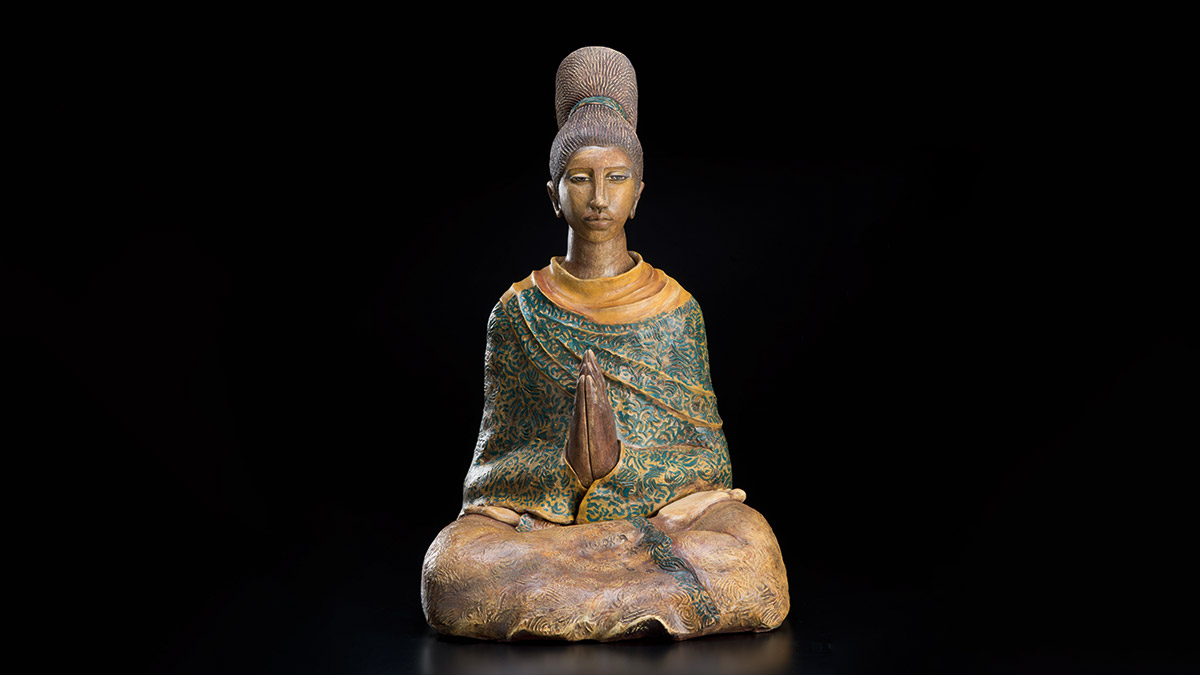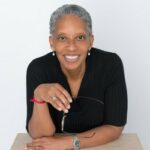Pamela Ayo Yetunde: How do you perceive the particularities of Black individuals’s struggling in the US?
Jean Marie Robbins: I perceive them as an intentional machine to take care of an enslavement mentality, to ensure that the individuals on prime and in energy to do as little as they should and reap the advantages of very cheap labor, if not free labor. That was intentional from the start, and it took time to take root. Now it’s so deeply rooted that it’s rooted in my very own consciousness, and I’ve to work deliberately towards the concept I’m indebted and I’ve to at all times pay my means and pay twice as a lot, simply to belong and to face alongside individuals in white our bodies.
Pamela Freeman: Jean, you stated it very clearly, and I might echo what you stated. We’re nonetheless residing in a post-Confederacy. There’s this entire factor of taking away of our rights and chipping away at the whole lot we have now with the intention to hold us managed. Take into consideration slavery. Our youngsters had been taken away from us; marriage was one thing that couldn’t occur for us. Now they’re attempting to eradicate public colleges, attempting to eradicate the whole lot that may empower us. I see what’s taking place on this nation. It appears to be getting worse, not higher.
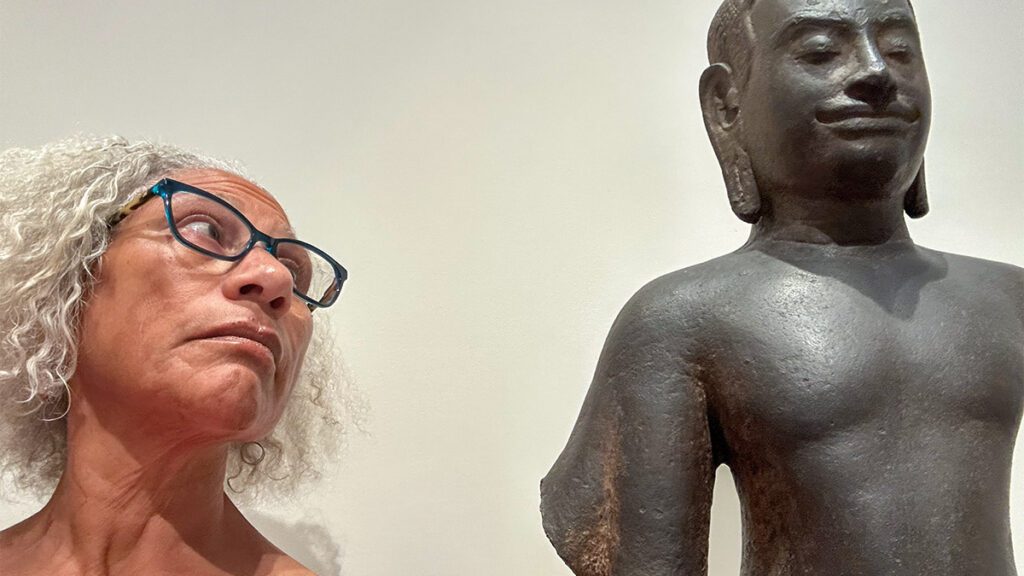

Ramona Lisa Ortiz-Smith: I didn’t wish to take care of race once I first began working towards. I simply needed to sit down and meditate, however there’s a pressure in meditation that brings up the reality. So, I’m rediscovering and peeling again the layers to determine my understanding of blackness in America. It’s an oppressive system that was created to oppress Black individuals and different peoples who weren’t a part of the dominant tradition. And it nonetheless exists, it nonetheless persists.
I used to be writing one thing the opposite day about individuals wanting us to neglect about slavery as a result of it was a very long time in the past. However once I sat down and checked out it, I’m solely perhaps three generations out of slavery on my mom’s aspect, and perhaps 4 generations out on my father’s aspect. Then I have a look at what’s taking place at present.
What actually will get me is the financial oppression—the lots of of years that we labored as enslaved Africans, with none compensation, with barely any meals, whereas the methods we had of supporting ourselves culturally had been stripped from us. Given on a regular basis we had been constructing wealth for this nation and for the world, to have it circled—to say that it’s my fault that I’m on this financial state of affairs—is loopy. If the financial system doesn’t change, the state of affairs will not be going to alter.
We’ve tried through the years to have our personal this, that, or the opposite, then it will get destroyed, blown up, taken, stolen once more. I’ve been considering, “The place on this planet can I reside outdoors of the system?” as a result of I’m drained. What nations haven’t been colonized? The place is there not racism towards this Black lady’s being? We’ve received to alter the financial system, destroy it utterly—in some peaceable means.
Victoria Cary: We’re a various individuals, so it’s tough to generalize, however what involves thoughts is our exhaustion at having to nonetheless combat for equality, fairness, and for our lives.
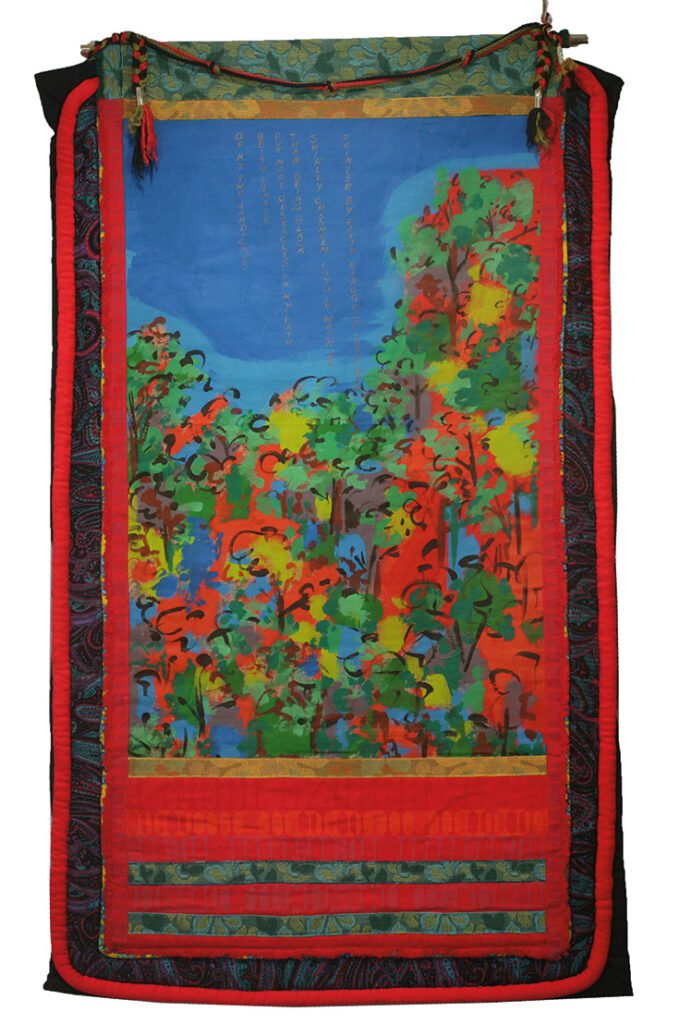

“Feminist Sequence: Of My Two Handicaps #10 of 20,” 1972 © Religion Ringgold / Artists Rights Society (ARS), New York, Courtesy ACA Galleries, New York / CARCC Ottawa 2024
Given the particularities of the struggling of Black individuals in the US, how can Buddhist follow assist?
Ramona Lisa Ortiz-Smith: The dharma is a therapeutic pressure. It’s drugs for the soul. That’s the reason I do it. I follow as a result of the whole lot that is part of life is within the dharma—the reality of the character of issues. It’s a language that I perceive, I feel, from means again to all of my completely different indigenous roots. It’s the language of what’s current, what’s actual.
Training the dharma permits me to ponder, uncover, and mirror on ways in which I’d have the ability to reside this life with extra ease and peace, love myself, forgive myself, love others, forgive others in a means that features forgiving them for racism. The dharma is drugs; it offers me with a salve, which to me are the teachings that, when practiced and utilized to my life, assist the therapeutic of my being. As a practitioner, I’ve to let go of my views, and I’ve to mirror on my conditioning and the conditioning of others. It’s deep whenever you actually do this. The dharma says that that is what you must discover liberation and that is the way you do it, so go see for your self. I can carry the dharma to bear on racism or on the rest.
Pamela Freeman: I agree that the dharma is drugs—it’s therapeutic. Earlier than I practiced the dharma, I felt actually disconnected. It has helped me to not be agitated, to take heed to individuals higher, to be kinder to myself and different individuals. It’s helped me to be quieter, and it’s given me a number of hope. After I’m in meditation or strolling or considering or listening to a dharma discuss, I really feel so grateful that I’m alive.
The dharma has helped me to have the ability to take care of some white individuals, as a result of, earlier than I practiced, I used to be simply carried out. Now I might be with them and never really feel so indignant. It’s helped me to not be so reactive, and I feel that’s why Black individuals want the dharma. We might be actually imply and nasty to ourselves. This follow helps me give myself a break once I make errors.
Jean Marie Robbins: I reside in Chicago and I belong to Shambhala Chicago. I got here to Shambala about ten years in the past in a really resistant mode, however the minute I heard the instructors say that meditation builds confidence in our fundamental goodness, I used to be hooked, as a result of as a Black individual, I’d by no means earlier than heard that I used to be principally even acceptable, to not point out good.
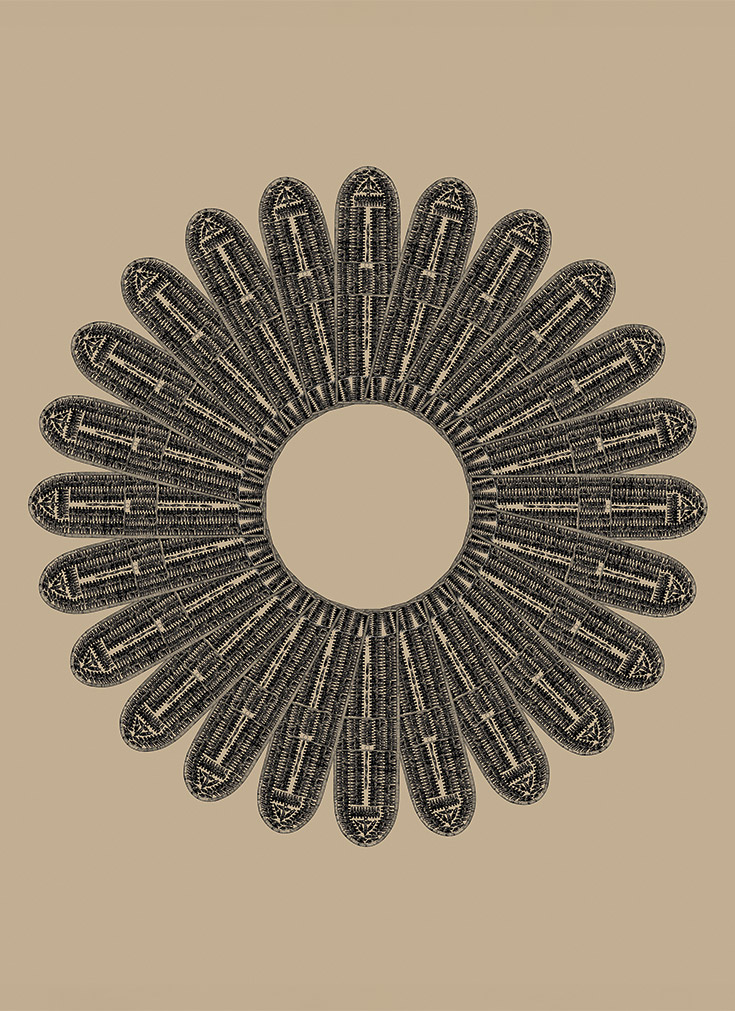

Buddhism’s first noble reality is that there’s struggling. Relating to the particularities of the struggling of Black individuals, I’ve coped a lot of my life by anticipating to undergo racial hurt and anticipating white individuals to take a look at me in a detrimental means. Now, I’ve shifted my concept of struggling, and I ask myself, “What can I be taught right here?” One of many issues I’m studying to do is to launch what I think about individuals are excited about me—that’s only a thought. After I pause, I’m letting go of that flood of detrimental discuss. After all, it floods proper again. It’s regular to have detrimental self-talk, so studying to let it go is a course of—it doesn’t occur in a single day.
I feel the thought of no self is such a perplexing concept, but it surely’s one of many issues that has helped me acknowledge this concept of id as a entice. In a dharma setting, we are able to discuss that and actually discover what it means to shackle ourselves with the concept we’re restricted to this id, an id that’s outlined by our society as one thing horrible, when actually, it’s our unbelievable resilience and resolve to outlive that has made this nation.
From Dr. Sheila Walker’s anthropological examine of African descendants, particularly within the Americas, I’ve discovered that Afro-diasporans made the fashionable world by impacting music, science, enterprise, meals, agriculture, sports activities, and plenty of different fields. Studying this has completely shifted my excited about what we’ve contributed, what we’re able to, and what I’m able to.
Victoria Cary: Dharma is a path towards freedom. The dharma might be that for Black people, too. It’s actually been that for me.
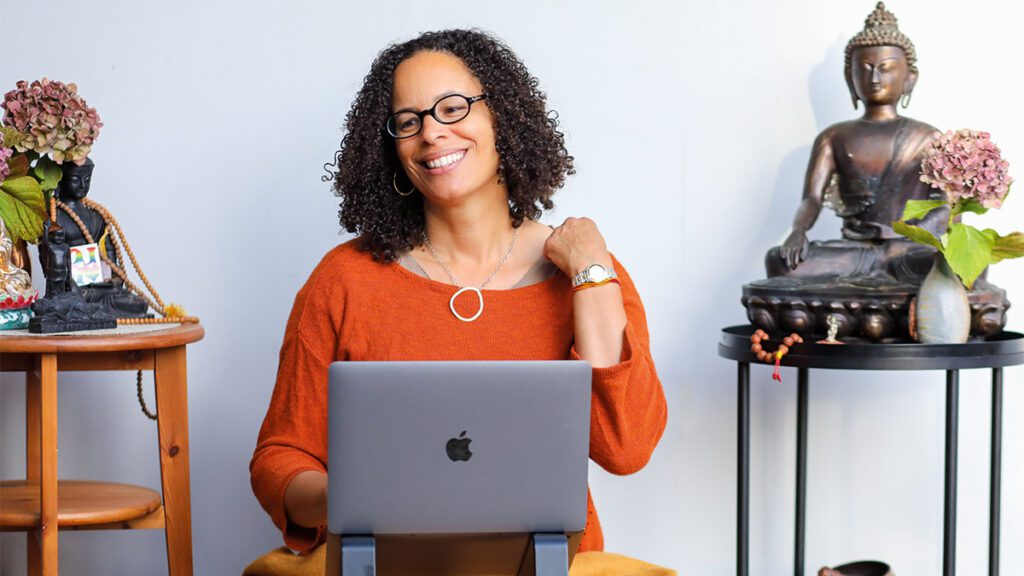

For those who might give one piece of recommendation on the best way to expertise liberation, what would that be?
Victoria Cary: Be curious and acknowledge actuality with compassion.
Ramona Lisa Ortiz-Smith: My recommendation can be to domesticate embodied stillness and empowered silence. Once you select to be silent—and never silenced by the oppressors—whenever you keep within the current second with this breath, this physique, there is a component of liberation.
Pamela Freeman: Liberation, to me, is believing in your self. Belief in your self, in your stillness, and even in your motion. Know that being your self and believing in your self will not be one thing above you—it’s inside you.
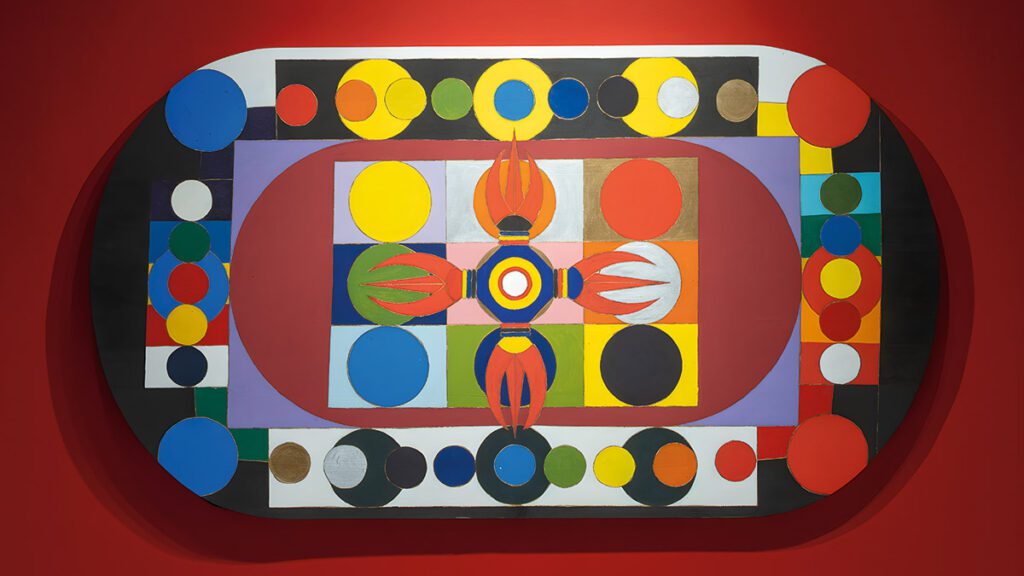

Jean Marie Robbins: In constructing on that, Pamela, I feel that connecting with what we actually are—with our fundamental goodness—and accepting all our stumbles and flaws softens us and permits us to attach with others. And that’s the place liberation occurs in {our relationships}, not simply with others, but in addition in our relationship with ourselves.
Ramona Lisa Ortiz-Smith: Motion is such an enormous a part of my Black expertise. In transferring, the thoughts will get to settle in order that we are able to simply be with our reality, hook up with the earth, and see the concepts, views, and the conditioning that entice us, that shackle our minds. In embodied motion, there’s freedom.
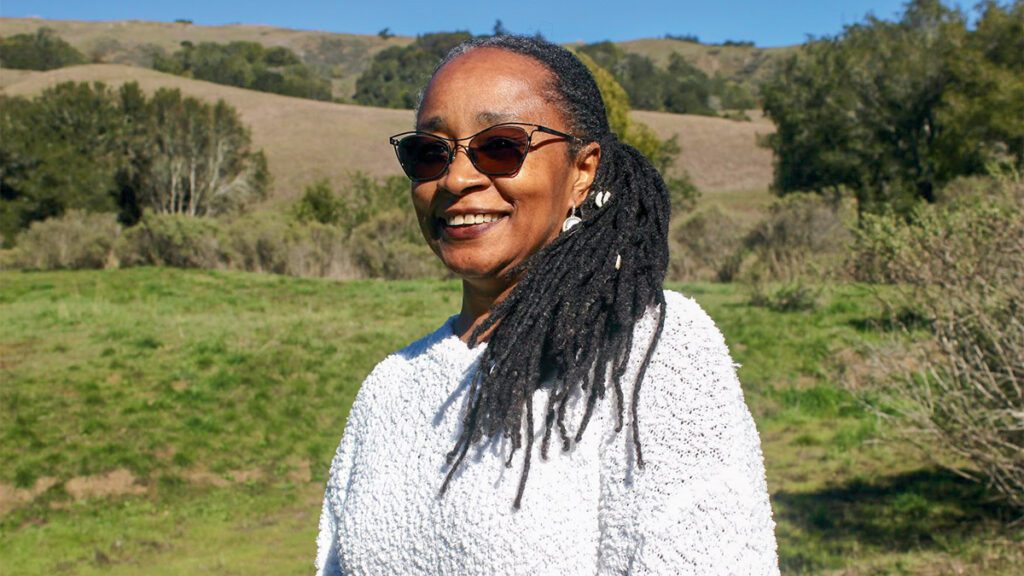

Jean Marie talked about the idea of no self. That phrase and idea has additionally been utilized in Buddhist dialogue to imply that race, ethnicity, the methods we determine socially don’t matter. My query to you is, does it matter to the individuals you serve in your dharma communities that you’re Black?
Ramona Lisa Ortiz-Smith: Sure, it issues. Earlier than I can really let go of my id, I’ve to embrace all of who I’m—all of my life, all of my experiences, all of my views. This manner, I get to know all these completely different aspects of my id and perceive the place they got here from, how they’ve formed me, and the way society persists with figuring out me with a few of them.
However “no self” doesn’t imply that I don’t exist. Like Pleasure DeGruy [author of Post Traumatic Slave Syndrome: America’s Legacy of Enduring Injury and Healing] says, on this pores and skin, it’s a unique expertise. So, it’s true that I seem like this—I’m Black—and my expertise on this world and in meditation and dharma communities is totally completely different due to it. I’ve to stroll by way of this world on this pores and skin; I can’t go away house with out it. Due to this fact, I’ve tangible, visceral experiences as a dharma practitioner and trainer on this pores and skin which can be completely different than those that will not be individuals of shade and don’t reside on this pores and skin. It causes difficult situations within the follow and in follow communities as a result of I and different individuals imagine that I’ve a self that’s “Black.”
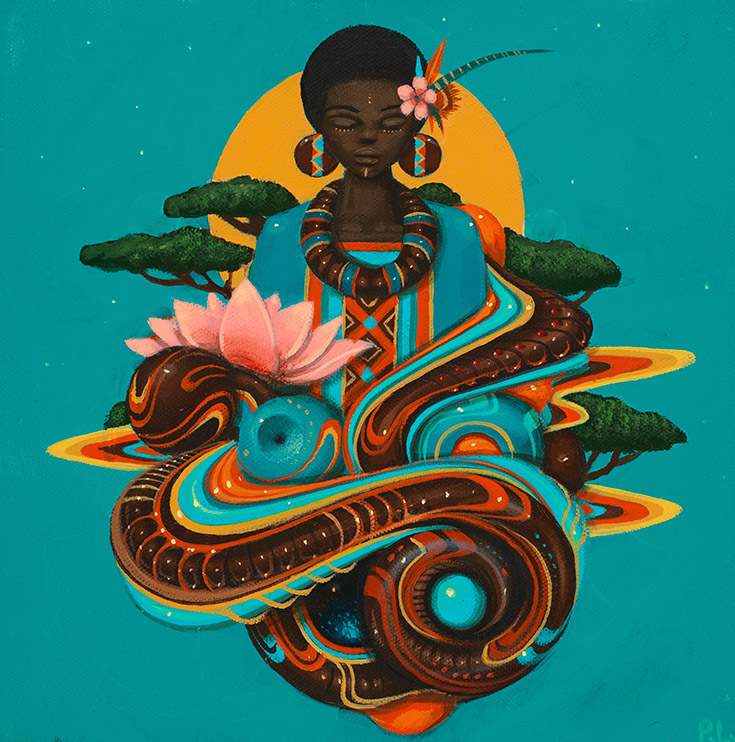

Jean Marie Robbins: Sure, it completely issues that I’m Black! I really feel like my displaying up in my sangha is a follow that I impose on my white colleagues. It’s a follow for them to handle their sense of hysteria or curiosity or resistance or no matter.
My Black physique does get a unique response from others. On an absolute stage, there’s no self, and I can see that. I can relinquish the habits that confine me to this sense of id. I might be completely free, however I’m on this physique, so I most likely am not going to relinquish all these habits till I go away my physique.
Victoria Cary: That assertion—that race and different identities don’t matter—is simply not true. Race issues, identities matter. It issues to me, and it issues deeply to these Black people I serve. It issues as a result of for those who don’t acknowledge my race, my gender, my sexual id, you don’t acknowledge me, my struggling, or my humanity. The dharma is about actuality, and the truth is that race-based discrimination continues to be taking place at present on this nation.
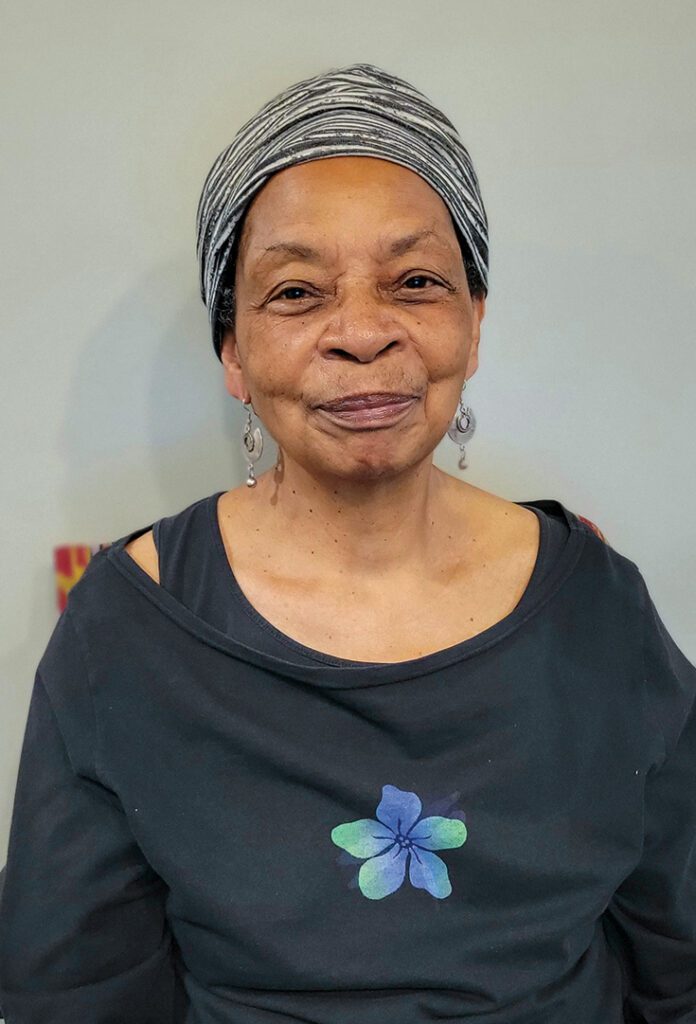

Pamela Freeman: Delaware Valley Perception is combined—largely white. Folks inform me it’s essential that I’m there, and my expertise may be very completely different from the white members of my group. With the individuals of shade group, my presence provides them hope. After I see Black dharma lecturers and leaders, I wish to cry. After I began this follow, there have been two Black individuals, and now there are numerous of us. I feel we give one another hope.
As we talked, I felt myself falling in love with you all, and that has to do with feeling like I used to be receiving a transmission of deep loving-kindness, compassion, and care. You all have dedicated yourselves to handle individuals like me, and I felt myself leaning in for that care. Thanks.


